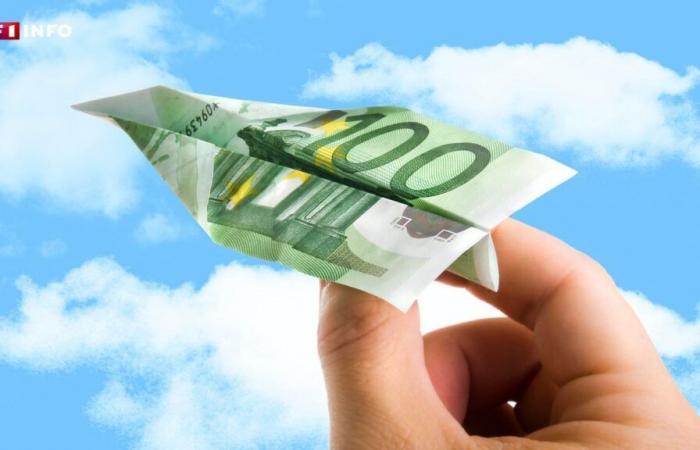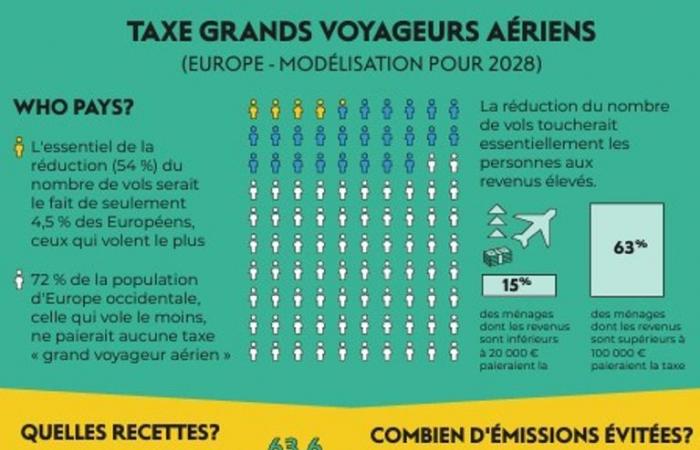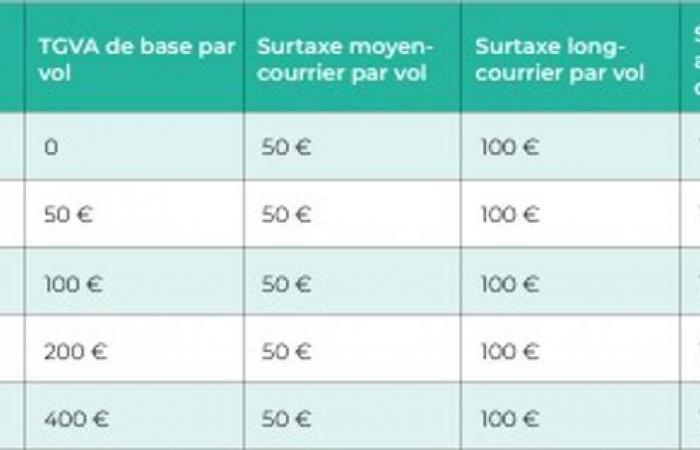While the NGO Générations futures is pleading in France for the establishment of a frequent traveler tax, the idea is also gaining ground in Europe.
The New Economics Foundation published a study on Thursday on the impacts of such a tax on air traffic.
With one goal: to reduce the use of this means of transport that is particularly harmful to the planet.
Make the biggest polluters pay. While in France the debate has opened to increase taxation on the airline sector (new window)several NGOs are campaigning for the introduction of fairer taxes to regulate this mode of transport, which particularly emits greenhouse gases. Last September, the Climate Action Network launched the idea of a “frequent traveler tax” in France (new window) to charge the largest users of this mode of transport. An idea now taken up at European level.
In a study published Thursday October 17 (new window)the New Economics Foundation has, in turn, quantified the benefits of such a measure in Western Europe. Because when we talk about airplanes, a minority of the population emits the majority of greenhouse gases. “In Western Europe, our analysis shows that households with the highest incomes (more than 100,000 euros per year) are at least six times more likely to make three or more return trips per year (for leisure) than households with lowest income (less than 20,000 euros per year)”, points to the report.
Less CO2 and more revenue
Hence the idea of this “frequent air traveler tax” which would penalize people with the highest incomes when they make more trips by plane. “The establishment of a kerosene tax (new window) or another form of carbon tax for flights must be given priority”, specifies the New Economics Foundation before adding that the TGVA could complete the implementation of this taxation. A “key tool for the public to perceive climate action as fair, and to avoid a backlash against policies and the green transition more broadly”.
-
Read also
Plane, train, car… Which means of transport pollutes the most?
According to the organization’s data, the implementation of the tax during the year 2028, the time to think about the process, “should reduce carbon emissions from European aviation by 21%” while only penalizing “4.5% of the population of Western Europe”. Furthermore, the implementation of this TGVA could generate up to 63.6 billion euros in additional tax revenue for the whole of Europe, points out the New Economics Foundation.
Like the idea launched by the Climate Action Network, taxation would be indexed to the number of flights per year, the distance and the class reserved by the traveler.

With expected concrete results: a 26% reduction in the number of passengers in 2028, a 21% reduction in greenhouse gas emissions and a 607% increase in revenues linked to the air sector. Profits made by taxing a minority of European households, “in most Western European countries, between 75 and 80% of the population would not be affected by the TGVA, because they do not fly at all or only make one round trip by plane per year”, recalls the study. At the national level, in France, 22.4% of the population would be likely to pay the TGVA at least once a year.








